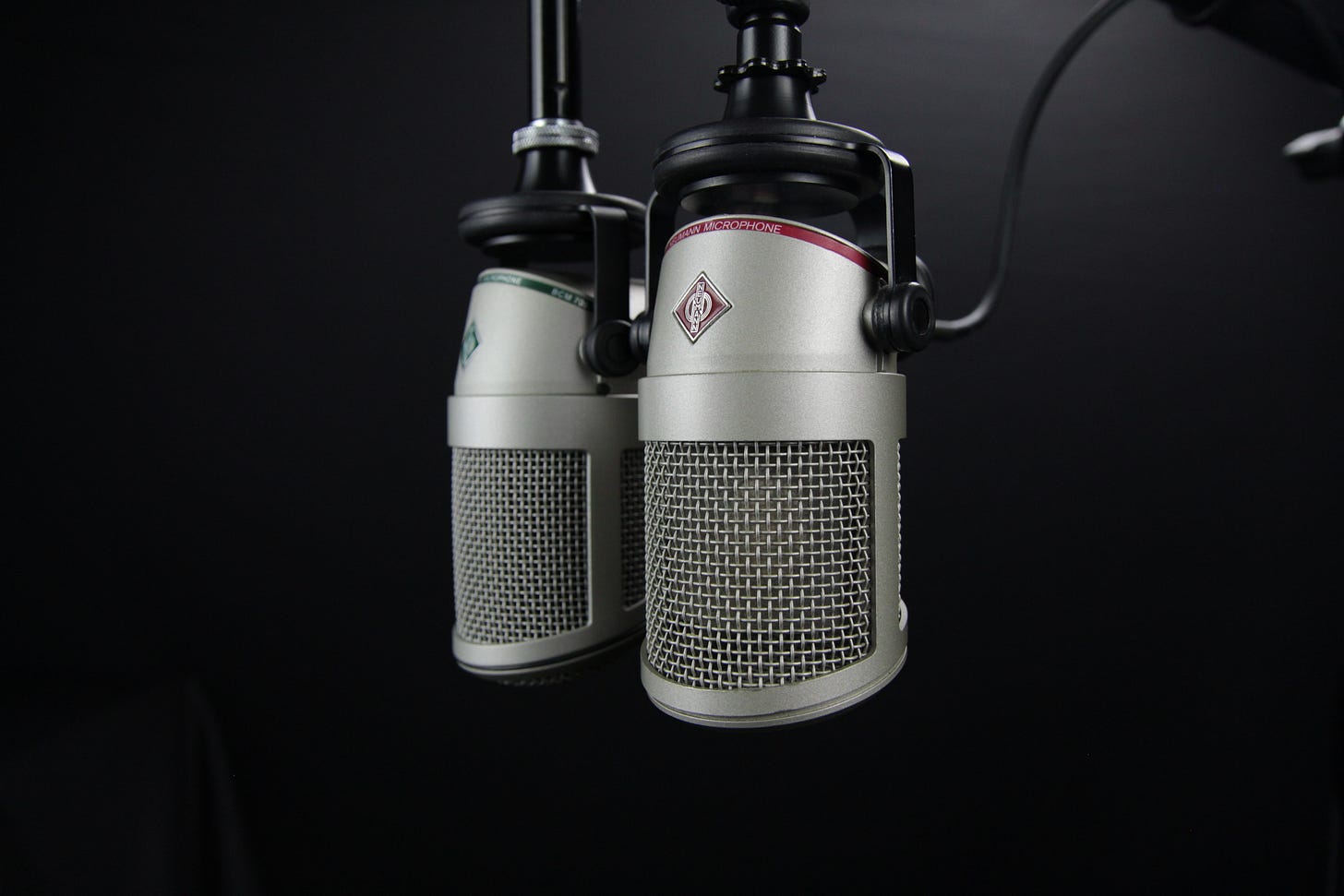It's my 20th anniversary on radio. What an amazing ride.
It's hard to believe, but today marks two decades of my SiriusXM program.
The Signorile Report is reader-supported. If you’ve valued reading The Signorile Report, consider becoming a paid subscriber and supporting independent, ad-free opinion journalism. Thanks!
It was 20 years ago today, April 15, 2003, that I began my five-day per week show (several hours each weekday) on what was then Sirius Satellite Radio.
With only 30,000 subscribers, Sirius was taking its first dip into live talk radio, having earlier launched as a platform for music of all kinds, beamed via satellite directly into people’s cars, via paid subscriptions.
It seemed to me like something that was destined to fail, though I figured I’d give it a try. Who would pay for radio?, I asked myself.
Twenty years later, after it merged with rival satellite radio provider XM Radio early on, SiriusXM has 39 million subscribers. So what do I know?
Sirius wisely decided, in launching its first live call-in talk channel, to target a community that was starved for media outlets and desperate to connect. That was the LGBTQ community, under siege in the Bush years and primed for a national platform to which it would be enormously loyal.
My show launched on Sirius OutQ, the first national 24-7 LGBTQ radio talk channel ever. It connected a national underserved community—and helped drive up those subscriptions.
While the channel had a variety of hosts and focuses, mine would be politics. It was quite a time to launch a political talk show, just as the invasion of Iraq was underway. It would be a roller coaster ever since, as I chronicled here on Substack in more detail at my 18th anniversary two years ago. I eventually moved from OutQ to Progress, the newly-branded progressive political channel that SiriusXM launched in 2013.
I remember people pulling over to the side of the road to cry as they called into the program in 2004 when George W. Bush won re-election. There was the enormous jubilation when Barack Obama made history in 2008, and there was the shock and sheer terror when Donald Trump won in 2016. The celebration—and relief—when Joe Biden was declared the winner in 2020 was soon subsumed by the horror of January 6th, which happened while we were live on the air.
In between, there were so many events—including too many mass shootings to count—that had people calling the program in fear and rage. And there were many incredible moments of pure joy, such as winning the long fight for marriage equality.
I had previously been a print and online journalist and commentator for a number of years and had done just about every medium, including television. Live call-in talk radio was the most challenging and had the longest learning curve. There’s no editing, no script, and no teleprompter. Just hours of thinking out loud, speaking with guests, and taking calls from listeners.
Anything can happen, and that spontaneity is what makes it exciting. But you’re also vulnerable, as everything you say is a rough draft, unlike in other media where you clean it all up. So if you make a mistake, well, you correct it the next day. (Unless it’s right-wing talk radio, in which case you just repeat a falsehood the next day!)
It took a long time to get comfortable with that, but it’s amazingly freeing to connect with people as you approach the news with your first thoughts—freshly formed—and deal with anything that may come your way on the phone from callers, many of whom are enlightening and, yes, some of whom are just plain bonkers and sometimes make for hilarious moments.
That’s especially true when belligerent right-wingers call in—why they listen, I have no idea—and I take them to task. It gives the rest of the listeners a lift too, as we' don’t take crap from anyone, and it helps us all demystify the people who are trying to take down democracy.
I have enormous gratitude for my audience. There is nothing like it. Whenever we talk about any topic, from nuclear fission or education policy to banking regulations or military security clearances, people call in who have enormous experience in those areas and offer their expertise.
The diversity, too, keeps me charged and hopeful. I’m honored to have so many women, people of color, LGBTQ people, and others call in when we discuss issues affecting civil rights and harm being done to all of our communities. The show has truly been a place for us all to learn from one another, give each other hope, connect people from the biggest cities to the most rural areas, and organize together.
And it’s been enormous fun, giving me and the listeners many much-needed laughs along the way.
So thank you to all of you who’ve been part of this journey, whether you've gone back all or most of these 20 years or have joined us recently. It’s been a profound honor. And I’m surely looking forward to continuing the conversation.



Congratulations my friend! You are truly making a difference with your show!
Been following you for those decades. You are a wonderful journalist. Thank you.